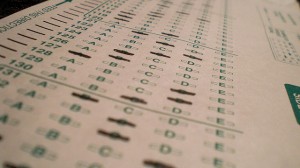In the wake of Hurricane Katrina, the devastated city of New Orleans entirely reinvented its system of public schools – by eliminating neighborhood schools and creating a city-wide system of competing, privately managed schools formally open to children regardless of where they live. State authorities spurred this transformation by rating most preexisting schools in the city as “failing” and using the state-run Recovery School District to take control of such schools away from the Orleans Parish School Board. All public school teachers were fired and their contracts nullified. In the weeks after Katrina, school reformers set up charter schools funded with public dollars but managed by private companies or nonprofit organizations. New Orleans became a nearly all-charter city, allowing for what many have called a “grand experiment” in school reform.
Soaring Rhetoric and Disappointing Reality
According to Arne Duncan, Secretary of Education in the administration of President Barack Obama, the “best thing that happened to the education system in New Orleans was Hurricane Katrina.” Along with Louisiana’s Republican Governor Bobby Jindal and many others, Duncan touts the significant progress that post-Katrina reforms have brought about in test scores, graduation rates, and college entrance by graduates of New Orleans schools. But rhetoric aside, the actual results in New Orleans tell a much different story.

The 2014 release of statewide test results by the Louisiana Department of Education shows that the New Orleans Recovery School District comes in at the 17th percentile for the percentage of students who test at the basic level and above. Such disappointing results have happened consistently, not just once. The state also assigns every school a letter grade each year, and the Recovery District has consistently had no “A” schools and just a few “B” schools. Finally, college admissions test results show that the average score for the New Orleans Recovery District is so low that the tested students would not be able to get into Louisiana State University. Reform advocates bury disappointing performance at Recovery District schools by averaging them with results for schools that remain under the jurisdiction of the Orleans Parish School Board. Those schools never placed under state control had “A” or “B” ratings prior to Katrina and not surprisingly, they continue to perform at very high rates. Averaging disparate performers naturally masks problems. For example, one of the city’s foremost charter advocates reported a 76.5% graduation rate for New Orleans schools in 2013 – but she arrived at this figure by averaging the 93.5% Orleans Parish graduation rate with a Recovery District graduation rate falling under 60%.
Mystification about school evaluations is another way to obscure what is happening in New Orleans. The Louisiana Department of Education has changed the formula for calculating school letter grades nearly every year. Because the A to F scale does not change, people believe that a “B” in one year means the same thing as that grade the year before. However, any time a measure is altered valid comparisons over time become impossible. In 2013, the new Louisiana formula gave bonus points to low-performing schools that showed growth and lowered the cut points, thereby making it easier for schools to get higher grades without actually improving performance. Sadly, many reformers who cite higher school grades as progress are using results that cannot be accurately compared from year to year.
School Authorities Make Most of the Enrollment Choices, Not Parents
Many supporters of school changes in New Orleans claim that, even if the revamped schools are still struggling, the new system is better because parents have choices about where to enroll their children. Some advocates speak as if parents can move their children into and out of particular schools at any time. But in fact, New Orleans schools control their enrollments very carefully and the enrollment process works differently in the Recovery District versus the Orleans Parish.
- In the Recovery School District, parents fill out a common application and rank their choices, after which District authorities allocate students to schools in a mysterious, opaque process. In 2014, about one fifth of students did not get assigned to any of the schools their parents ranked in their preference lists.
- In the Orleans Parish system, parents have to apply to each school individually. Most of these schools utilize different forms of selective admissions and it is notoriously difficult for children to get into the highest-performing schools.
- In both districts, many schools have disciplinary contracts that allow school authorities to suspend or expel students for even small infractions.
Overall, New Orleans schools choose their students, while parental choice is constrained.
The True Winners and Losers

The revamped New Orleans school system gives significant advantages to parents with higher levels of education and income, plus the knowledge, time, and expertise needed to deal effectively with authorities. Preexisting racial and economic inequalities persist as children pass through school. Although there are some students who are better off than they would have been under the old system, they represent the outliers and not the average experience. Many New Orleans students continue to get inferior educations, and the biggest winners are private charter management companies and their investors, charter school executives who are paid handsomely in spite of poor student performance, the Teach for America nonprofit that places many young teachers in the schools for two-year stints, and the testing and curriculum industry.
If New Orleans citizens become really upset, can they vote to change the system? Not very easily. In the last school board, no candidates opposed the privatization agenda and of course “choice” appeals to most Americans. Reform advocates understand that highlighting some possibilities for parental choice enables them to continue policies in spite of the poor results discussed here. Rhetoric aside, sooner or later, New Orleans will need to address the current system’s failure to improve schooling for all children. Reality has fallen far short of rhetoric.

 Research to Improve Policy: The Scholars Strategy Network seeks to improve public policy and strengthen democracy by organizing scholars working in America's colleges and universities. SSN's founding director is Theda Skocpol, Victor S. Thomas Professor of Government and Sociology at Harvard University.
Research to Improve Policy: The Scholars Strategy Network seeks to improve public policy and strengthen democracy by organizing scholars working in America's colleges and universities. SSN's founding director is Theda Skocpol, Victor S. Thomas Professor of Government and Sociology at Harvard University.